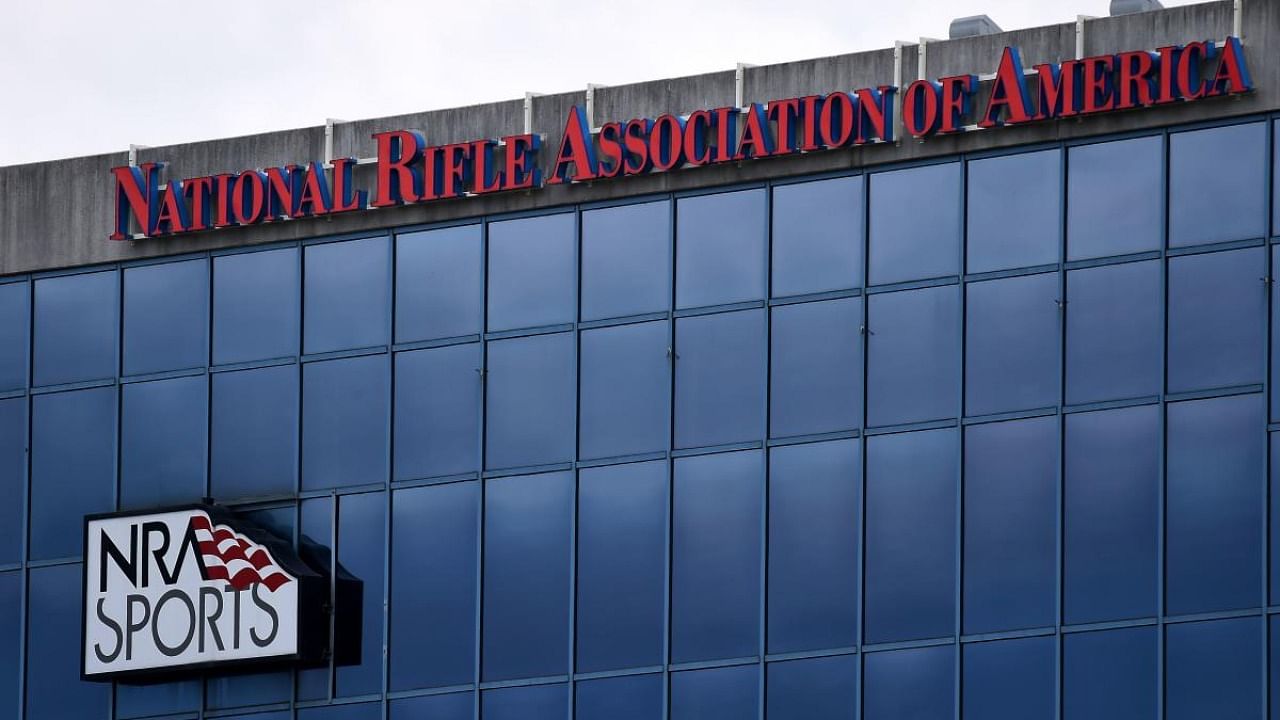
Seeking an end-run around an investigation by the New York attorney general, the National Rifle Association said Friday that it was declaring bankruptcy and would reincorporate in Texas. The gun group was set up in New York after the Civil War.
The group’s effort to circumvent New York’s legal jurisdiction raised immediate questions from Letitia James, the New York attorney general and a Democrat, who is seeking to use her regulatory authority to dissolve the NRA. She has been conducting an investigation into corruption at the gun group since 2019.
“The NRA’s claimed financial status has finally met its moral status: bankrupt,” James said in a statement Friday. “While we review this filing, we will not allow the NRA to use this or any other tactic to evade accountability and my office’s oversight.”
James’ investigation has come as the NRA has been wracked by infighting and discontent, including the bitter departures of its president, Oliver North, and its top lobbyist, Chris Cox. Long the nation’s most powerful gun lobby, the NRA played a diminished role in the 2020 election, hampered by financial woes and a host of legal challenges.
Typically, nonprofit groups that are chartered in New York and under investigation are prohibited from relocating their assets during an inquiry; in recent years, the attorney general’s office prevented the Trump Foundation from closing before it had reached the conclusion of an investigation into that organization.
The bankruptcy filing could delay the resolution of the attorney general’s case while the matter is litigated in bankruptcy court.
“Under this plan, the Association wisely seeks protection from New York officials who it believes have illegally weaponized their powers against the NRA and its members,” William Brewer III, the NRA’s lead outside lawyer, said in a statement.
But the group’s adversaries saw the move as an opportunistic effort to evade a reckoning with the attorney general’s office.
“This is clear that they are desperate, and they are seeking novel recourse in their desperation,” said Nick Suplina, a former senior adviser and special counsel in the New York attorney general’s office who now works for Everytown, the gun control group. “I think this is a long-shot effort by the NRA to avoid liability in New York, and it has a very slim chance of succeeding.”
The NRA and a subsidiary filed Chapter 11 petitions in the U.S. Bankruptcy Court in Dallas. It reported between $100 million and $500 million in assets and the same amount in liabilities, with aggregate noncontingent liquidated debts, excluding those owed to insiders or affiliates, of less than $2,725,625.
Sean Delany, a former chief of the charities bureau in the New York attorney general’s office, the division that handled the case, questioned whether “the filing accurately represents the NRA’s financial position.”
Delany worked at the attorney general’s office when another high-profile charity, the Freedom Forum, reincorporated amid an investigation into its spending practices, but that did not forestall penalties being levied.
“Our position was, you can dissolve your corporation here and relocate, but the assets remain in New York and subject to the jurisdiction of the attorney general,” he said.
Bankruptcy, however, adds a new wrinkle.
The NRA said Friday that Marschall Smith, a former general counsel for 3M Co., would serve as its chief restructuring officer.
It also said it had also formed a committee to examine moving its headquarters out of Fairfax, Virginia, and that it would study “opportunities for relocating segments of its business operations to Texas or other states.”
Wayne LaPierre, longtime chief executive of the NRA, said in a statement that “this strategic plan represents a pathway to opportunity, growth and progress.”
“Obviously, an important part of this plan is ‘dumping New York,’” he added. “The NRA is pursuing reincorporating in a state that values the contributions of the NRA, celebrates our law-abiding members, and will join us as a partner in upholding constitutional freedom. This is a transformational moment in the history of the NRA.”
The NRA has weathered years of revelations about its spending and oversight practices, including hundreds of thousands of dollars spent on LaPierre’s Zegna suits and far-flung travel to places like the Bahamas; Palm Beach, Florida; Reno, Nevada; and Italy’s Lake Como. The group even once explored buying a $6 million mansion in a Dallas-area gated community for his use.
Last August, James, whose office has jurisdiction over New York charities, sued the NRA, seeking its closure along with tens of millions of dollars in restitution from LaPierre and three other executives.
In alleging widespread corruption, she claimed that the NRA paid a personal travel consultant for LaPierre $13.5 million, largely through no-bid contracts. Private flights were chartered for LaPierre’s wife and his niece, according to the complaint. During trips to the Bahamas, he made use of a 108-foot yacht owned by an NRA contractor. He lavished gifts from Neiman Marcus and Bergdorf Goodman on his inner circle and once put his niece up at a Four Seasons hotel for eight nights at a cost of more than $12,000, the complaint said.
The NRA almost immediately filed suit against James’ office, claiming her action was politically motivated and violated the organization’s First Amendment rights. But the group conceded in recent tax filings that LaPierre and other executives had received hundreds of thousands of dollars’ worth of improper benefits from the group, which were reimbursed.
“The NRA cannot be allowed to declare bankruptcy to try to escape potential criminal and civil accountability in New York,” said Kris Brown, president of the Brady Campaign, a gun control group. “The NRA can run, but they can’t hide, and their days are numbered. No organization is above the law.”